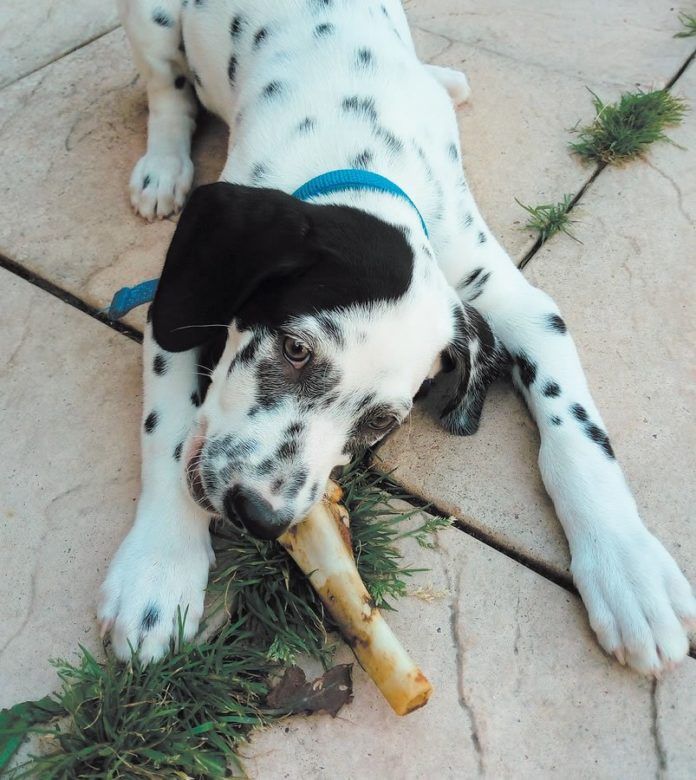Dog owners often hear they should never give their pet a chicken bone. The worry is that a dog can easily crush a chicken bone with his teeth, causing it to splinter and then perforate the intestine. “But that’s largely an urban myth,” says Your Dog editor-in-chief John Berg, DVM. “Chicken bone will almost inevitably dissolve in the stomach and never even reach the intestine.
“Still,” Dr. Berg says, “I would not make a habit of letting a dog chew chicken bones. I have had a couple of dogs in my career who swallowed pieces of chicken bone before chewing, and they then perforated the lining of the mouth or the esophagus.”
“Why take a chance?” Dr. Berg asks rhetorically. You don’t need to become overly concerned if your dog gets to a chicken bone before you have a chance to get it out of reach, but “you don’t want to be that odd case rushing to the emergency room,” he says.
The truth about beef bones
While many people have been scared off chicken bones for their dog, they give their pets beef bones with impunity. But one type of beef bone should be kept away from dogs — large beef vertebrae.
“People get them from the butcher as a special treat,” Dr. Berg says. “They’re not the long kind, for example a leg bone or rib. They’re roundish, with a lot of prominences on them.” The problem is that when a dog chews one, he has an urge to swallow because it’s hard to break into bits. The bone then has a tendency to become stuck in the lower part of the esophagus, which is actually in the chest.
“It’s a particularly nasty problem,” Dr. Berg says. “If we can’t get the bone out by endoscopy, we have to perform surgery. And it’s not easy. The bone is in an awkward location, and the esophagus may be perforated and is not the best tissue for healing.” Large, long beef bones like ribs and leg bones are much safer, the doctor advises.
Dogs who should not get bone of any kind
While long beef bones and chicken bones generally won’t harm your pet, there is one type of dog that should not have any access to bones whatsoever. That’s a dog who doesn’t just want to chew the bone but also wants to swallow it. In such cases, Dr. Berg says. “it’s probably best to avoid bones altogether.”
Not sure if your dog is inclined to swallow bones? “Pay close attention,” Dr. Berg counsels. “If you notice him attempting to swallow large chunks of bone, keep bones off limits and satisfy his desire to chew with Kongs and other safe alternatives.”





